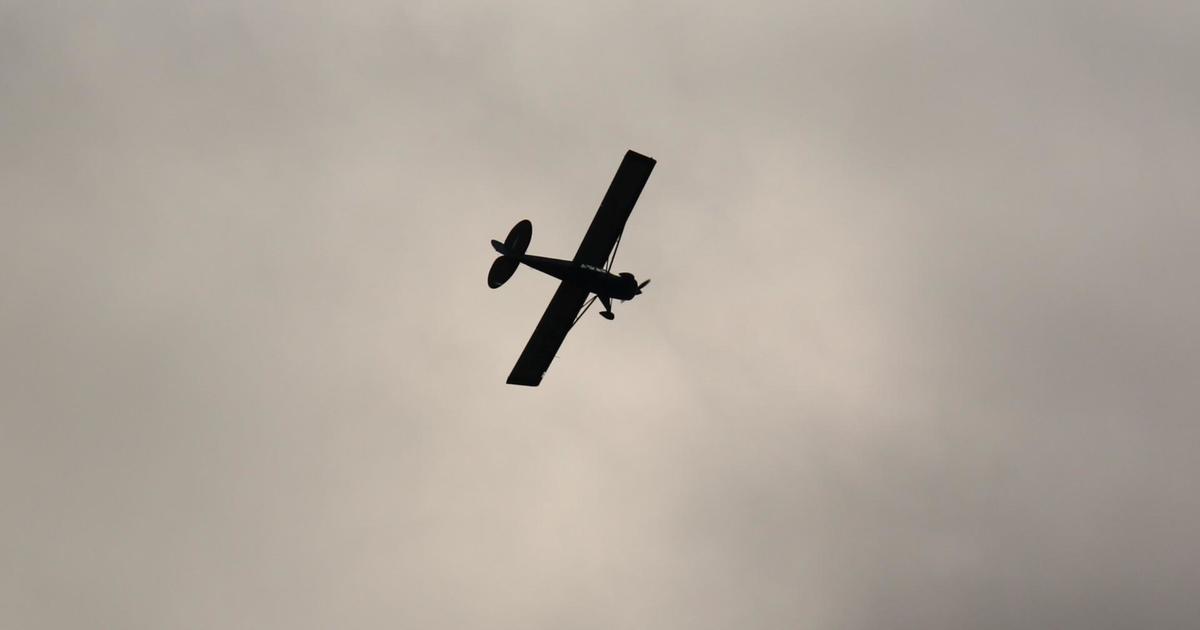Appeals Court Reverses Award In Cirrus Crash Case
MINNEAPOLIS (AP) -- The Minnesota Court of Appeals ruled Tuesday that Duluth-based Cirrus Design Corp. had no legal duty to provide pilot training to a Grand Rapids man whose plane crashed in 2003, killing him and his passenger.
The ruling reverses a lower court decision that found Cirrus and the University of North Dakota Aerospace Foundation, which conducted pilot training, negligent in the crash. Attorneys for victims' families say it could have implications for all consumers -- by possibly giving product manufacturers a way to insulate themselves from liability if they fail to warn consumers of dangers.
It also essentially vacates a more than $16 million award for families of pilot Gary Prokop and passenger James Kosak.
"This is a very troubling decision," said Philip Sieff, an attorney for the Kosak family. He intends to appeal to the state Supreme Court; an attorney for the Prokops said he would also recommend an appeal.
One judge disagreed with the majority. In his dissent, Judge Roger Klaphake wrote that once Cirrus made "transition training" part of its purchase agreement, it voluntarily assumed a duty to provide the training.
Prokop, 47, and Kosak, 51, left Hill City on Jan. 18, 2003, for St. Cloud to watch their sons play in a hockey tournament. They crashed shortly after takeoff. The families alleged Cirrus and the University of North Dakota Aerospace Foundation didn't provide adequate pilot training.
Jurors in Itasca County awarded Kosak's family $7.4 million and Prokop's family $12 million -- but Prokop was found to be 25 percent liable, reducing his family's award to $9 million.
Prokop, who received his pilot's license in 2001, had bought the Cirrus SR22 roughly a month before the crash. According to the court record, when Prokop bought his new plane he was given an operating handbook with data about the aircraft, its limitations, emergency procedures, details on the autopilot system, and other information.
Cirrus included two days of transition training in the purchase price. The training, which isn't required by the Federal Aviation Administration, is designed to familiarize an owner with the nuances of a new plane, according to the court record. The pilot training agreement states neither Cirrus nor its trainer will be responsible for the competency of purchaser.
"Although Prokop may have needed transition training to safely pilot the SR22, it does not follow that Cirrus had a duty to provide the training," the opinion said. "Accordingly, any liability based on appellants' failure to provide adequate transition training cannot be sustained under a product-liability theory."
Prokop was not certified to fly in cloudy or inclement weather in which he would have to rely on instruments. Trial testimony showed that after takeoff, he encountered conditions that might have required such training.
The families claimed Cirrus and the trainer didn't teach Prokop what he needed to know to escape the inclement weather.
"Because the claims challenge the effectiveness of the training, they sound in educational malpractice and are barred as a matter of law," the judges wrote.
Klaphake disagreed, saying Cirrus wouldn't give the plane to Prokop until he participated in the training, which included a checklist of tasks completed. The checklist for a maneuver to recover in inclement weather was left blank.
"Testimony at trial suggested that the failure to perform this very maneuver led to the fatal plane crash," Klaphake wrote. "On these facts, the crash here is a direct and foreseeable consequence of appellants' failure to provide the salient portion of the transition training to Prokop."
He also said neither Cirrus nor the University of North Dakota Aerospace Foundation are educational institutions and educational malpractice laws shouldn't be a factor.
Eric Magnuson, an attorney for Prokop's family, said: "I think the court had to reach an awful long way to get the result that it did. They basically took a product liability case and turned it into educational malpractice."
Bill King, vice president of business administration for Cirrus, said the appeals court ruled appropriately.
"This was a tragedy and it was not the fault of the airplane," he said.
(© Copyright 2011 The Associated Press. All Rights Reserved. This material may not be published, broadcast, rewritten or redistributed.)



